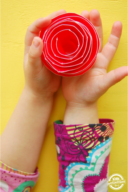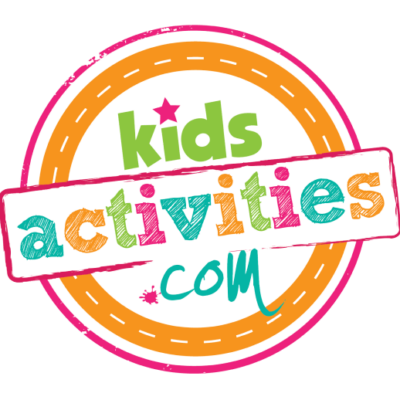Playing nicely together is a skill that kids need to learn {and a few adults}. Not only does it make the home happier, but in the end being nice is more fun. Kids Activities Blog loves these mom-tested get along ideas!

As the parent of a 16 year old and a 4 year old, there are frequent battles between the two as they each try to relate to each other on their respective levels.
10 Tips to Help Children Get Along with Each Other
1. Rules of respect, love, kindness and sharing
Develop household/classroom rules that are posted that are based on these traits. Rules should be stated in terms that all children can understand. Using graphics and pictures as needed.
2. State feelings, not blame
When conflict or hurt feelings arise, address the feelings it has caused in the offended child instead of chastising the offender. An example could be, Michael feels sad when you take his toys from him instead of It's naughty to take your brother's/friend’s toys.
3. Let big be big and little be little
Try not to expect too much out of each child. When dealing with my two children, a teen and a preschooler, I have to set expectations based on each of their conflict resolution skills for their ages.
4. Conflict provides opportunities to grow and connect
As long as there is no violence or cruel words being used, sometimes it's better to let children work their differences out. By handling their own disagreements, it teaches them to how to resolve problems in a productive way.
5. Blending the children's interests together
Payton wants to play play-doh while Ashton wants to play cars. Suggest that Payton can make play-doh roads for Ashton's cars to drive in. Or ask them if they can figure out how to play together in a way that includes both their interests.
 6. Make gifts for each other
6. Make gifts for each other
Provide various craft items such as modeling clay, pipe cleaners, beads, sequins, etc. for children to make gifts for each other. Or you can ask each child to pick a craft that they think the other would like and appreciate. This provides time to encourage them to consider the other's interests and feelings.
7. Take turns playing based on each child's interest
When two children are getting ready to play, but want to do different things. Roll a dice. The child with the highest number gets their choice in play for 15 minutes, and then they switch to the other child's pick.
8. Stress each child's strengths
One upmanship is a largely typical part of the sibling/friend dynamic. To help eliminate this, focus on specific strengths and talents of each child to provide them with a sense of individual worth.
9. What's mine is mine and what's yours is yours
Create spaces for each child to store or set aside their specials belongings, toys, etc. This is beneficial, especially if there is a shared bedroom or playroom. Not only does this teach respect for others and their belongings, it helps to ease disagreements on certain toys or items. This one generally works for siblings only. However, when playdates occur it’s okay to let your child set aside some toys that are not accessible during the playdate.
 10. Praise team work
10. Praise team work
When children work together on their own accord, this is something to be celebrated. When you catch them making nice choices, give them positive reinforcement so they seek to get those accolades again.
Handling constant squabbling and bickering is often inevitable but doesn't have to become the standard in your house/classroom. We ™d love to hear how these tips helped your family/class or any other ideas you already use.
Children sometimes need help and encouragement when it comes to getting along with others. For a few more ideas on how to help you child, you may want to check out these posts:
 As the parent of a 16 year old and a 4 year old, there are frequent battles between the two as they each try to relate to each other on their respective levels.
As the parent of a 16 year old and a 4 year old, there are frequent battles between the two as they each try to relate to each other on their respective levels.
 6. Make gifts for each other
Provide various craft items such as modeling clay, pipe cleaners, beads, sequins, etc. for children to make gifts for each other. Or you can ask each child to pick a craft that they think the other would like and appreciate. This provides time to encourage them to consider the other's interests and feelings.
7. Take turns playing based on each child's interest
When two children are getting ready to play, but want to do different things. Roll a dice. The child with the highest number gets their choice in play for 15 minutes, and then they switch to the other child's pick.
8. Stress each child's strengths
One upmanship is a largely typical part of the sibling/friend dynamic. To help eliminate this, focus on specific strengths and talents of each child to provide them with a sense of individual worth.
9. What's mine is mine and what's yours is yours
Create spaces for each child to store or set aside their specials belongings, toys, etc. This is beneficial, especially if there is a shared bedroom or playroom. Not only does this teach respect for others and their belongings, it helps to ease disagreements on certain toys or items. This one generally works for siblings only. However, when playdates occur it’s okay to let your child set aside some toys that are not accessible during the playdate.
6. Make gifts for each other
Provide various craft items such as modeling clay, pipe cleaners, beads, sequins, etc. for children to make gifts for each other. Or you can ask each child to pick a craft that they think the other would like and appreciate. This provides time to encourage them to consider the other's interests and feelings.
7. Take turns playing based on each child's interest
When two children are getting ready to play, but want to do different things. Roll a dice. The child with the highest number gets their choice in play for 15 minutes, and then they switch to the other child's pick.
8. Stress each child's strengths
One upmanship is a largely typical part of the sibling/friend dynamic. To help eliminate this, focus on specific strengths and talents of each child to provide them with a sense of individual worth.
9. What's mine is mine and what's yours is yours
Create spaces for each child to store or set aside their specials belongings, toys, etc. This is beneficial, especially if there is a shared bedroom or playroom. Not only does this teach respect for others and their belongings, it helps to ease disagreements on certain toys or items. This one generally works for siblings only. However, when playdates occur it’s okay to let your child set aside some toys that are not accessible during the playdate.
 10. Praise team work
When children work together on their own accord, this is something to be celebrated. When you catch them making nice choices, give them positive reinforcement so they seek to get those accolades again.
Handling constant squabbling and bickering is often inevitable but doesn't have to become the standard in your house/classroom. We ™d love to hear how these tips helped your family/class or any other ideas you already use.
Children sometimes need help and encouragement when it comes to getting along with others. For a few more ideas on how to help you child, you may want to check out these posts:
10. Praise team work
When children work together on their own accord, this is something to be celebrated. When you catch them making nice choices, give them positive reinforcement so they seek to get those accolades again.
Handling constant squabbling and bickering is often inevitable but doesn't have to become the standard in your house/classroom. We ™d love to hear how these tips helped your family/class or any other ideas you already use.
Children sometimes need help and encouragement when it comes to getting along with others. For a few more ideas on how to help you child, you may want to check out these posts:





















How do you decide what goes in their special items bin? I have three boys and they share all of their toys…Would this be done say after a birthday? They are still little 3 1/2, 2 and 7 months. Would love to try this int heir shared playroom.
Thanks!
This was super amazing! Thank you for posting:)
Great ideas for siblings and friends of all ages too!
Love these tips! Especially the last one – so important that they know they can have a few special items that are just theirs!
Good post. You hit the nail on the head so to speak . I appreciate you sharing your experience here. I could write something about each point but will keep it short. Thanks! Come visit me at toddlersthroughpreschool.com anytime. Cathie J